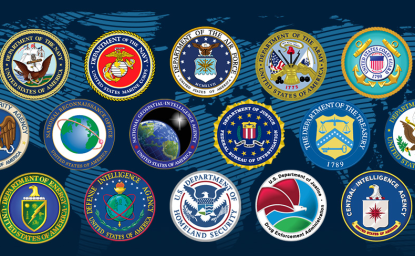Report: ISIS Has At Least 46,000 Twitter Followers
According to a new report by J.M. Berger and Jonathon Morgan at the Brookings Institution, ISIS has at least 46,000 Twitter followers, and one fifth use English as their primary language.
According to a new report by J.M. Berger and Jonathon Morgan at the Brookings Institution, ISIS has at least 46,000 Twitter followers, and one fifth use English as their primary language.
ISIS – also known as ISIL, Daesh, or the Islamic State – has a strong presence on social media. According to a new report by J.M. Berger and Jonathon Morgan at the Brookings Institution, ISIS has at least 46,000 Twitter followers, and one fifth use English as their primary language. The following are excerpts from the report.
The Islamic State, known as ISIS or ISIL, has exploited social media, most notoriously Twitter, to send its propaganda and messaging out to the world and to draw in people vulnerable to radicalization.
By virtue of its large number of supporters and highly organized tactics, ISIS has been able to exert an outsized impact on how the world perceives it, by disseminating images of graphic violence (including the beheading of Western journalists and aid workers and more recently, the immolation of a Jordanian air force pilot), while using social media to attract new recruits and inspire lone actor attacks.
Although much ink has been spilled on the topic of ISIS activity on Twitter, very basic questions remain unanswered, including such fundamental issues as how many Twitter users support ISIS, who they are, and how many of those supporters take part in its highly organized online activities.
Previous efforts to answer these questions have relied on very small segments of the overall ISIS social network. Because of the small, cellular nature of that network, the examination of particular subsets such as foreign fighters in relatively small numbers, may create misleading conclusions.
The information vacuum extends to—and is particularly acute within—the sometimes heated discussion of how the West should respond to this online campaign.
While there are legitimate debates about the bounds of free speech and the complex relationship between private companies and the public interest, some have argued against suspending terrorist social media accounts on the basis that suspensions are not effective at impeding extremist activity online. These arguments that are usually predicated on very small samples of potentially misleading data, when data is proffered at all.
We set out to answer some of these important questions using innovative techniques to create a large, representative sample of accounts that can be clearly defined as ISIS supporters, and to attempt to define the boundaries of ISIS’s online social network.
Our findings, based on a sample of 20,000 ISIS supporter accounts, include:
Click here to read the full report

Learn more about Hamas and how it relates to similarly aligned organizations throughout the region. Read more



